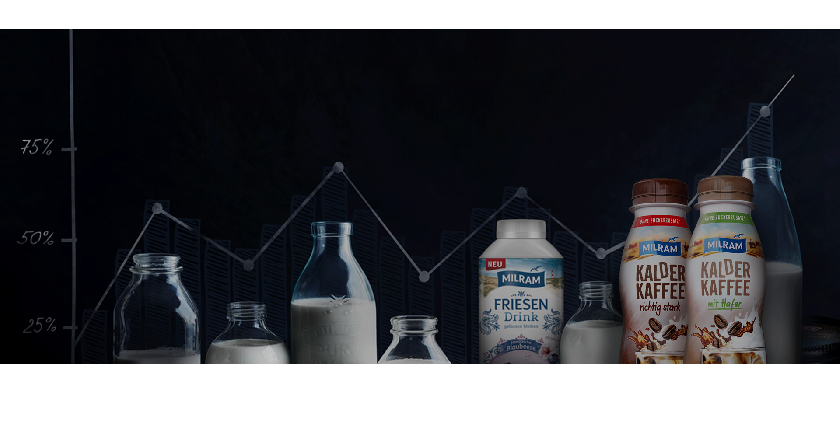Despite the massive restructuring, DMK Group look back on a stable 2019 financial year. Thanks to the measures taken, Germany’s largest dairy company considers itself well positioned for the coming years. Due to the special corona situation, the meeting of representatives will be postponed until the fall.
The DMK Group has used the year 2019 to implement and complete many of the measures initiated as part of its realignment. As part of this process, the company intends to continue working on reducing costs in 2020, while the investments made in recent years are now expected to bear fruit.
In this way Ingo Müller, CEO of DMK Group, also wants to close the gap in the milk price compared to other dairies during the current business year and reach the average of the comparable dairies: “2019 has demanded an enormous amount from all of us, the farmers, the employees in DMK Group and the entire industry. Our payout price in 2019 was not where we wanted it to be. However, in the past year we were able to make a catch behind numerous issues that have weighed on us – the fundamental restructuring of DMK is now complete”.
In order to be able to react flexibly and quickly to the changing demands of the market and consumer wishes and thus remain competitive in the long term, the company has invested, among other things, in the new plant in Strückhausen for baby milk powder or in a new drying tower in Beesten. In addition, the previous joint venture DVN in the Netherlands became wholly owned by the DMK Group, and in Russia the construction of a new plant for specialty cheese was initiated. In addition, DMK Group continued to consolidate the ice cream division in 2019 and began concentrating production at the Everswinkel and Prenzlau locations. The acquisition of the babyfood brand Alete has also enabled the company to strengthen its brand business. In addition to a large number of projects, the company also had to deal with a major loss of milk volumes at the beginning of 2019, which was absorbed by plant closures, work wage models and a changed product range policy. All projects still had an impact on earnings and disbursement performance in the past financial year.
The first positive effects of the company restructuring are also reflected in stable key figures: sales in 2019 are higher than in the previous year at €5.8bn (2018: €5.6bn). The equity ratio is stable at 30 percent (2018: 30.9 percent). Net income for the year is e24.5m (2018: €30.6m).
The corona pandemic has presented DMK Group, as well as the entire economy, with an unprecedented challenge, but the company is coping well with it, thanks also to the changes it has undergone in recent years. For Ingo Müller, there are signs that the markets are stabilizing, from which DMK will benefit. DMK have so far come through the crisis relatively well.
After the crisis, the company intends to push ahead with the upcoming change projects. In order to further reduce costs, for example, the “Pacesetter” program was launched with the aim of optimizing supply relationships and service contracts. The company’s ability to manage its business in 2020 also remains in focus. The transformation of the finance area, which was started under the “One Finance” program, will help here.
Dr. Frank Claassen, CFO of DMK Group, comments: “There is still a lot of work ahead of us. In 2020, too, it will be our task to spend money only when it is really used sensibly. We must continue to work on the clean management of our processes. Our strategy is aimed at making us increasingly independent of short-term market fluctuations. For example, by offering more high-margin products and fewer standard products.”



